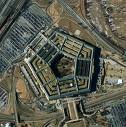The Pentagon’s New Law of War Manual is Chilling

Just when it seemed the government’s policy language couldn’t get any more paradoxical, self-justifying, and replete with inconsistencies, the Pentagon issued its “Law of War Manual” earlier this month. The manual is meant to dictate legal conduct for service members from all branches during military operations. Though the enormous tome is drier than stale bread, there are plenty of alarming entries—from designating journalists as potential terrorists to allowing the use of internationally banned weapons—which more than warrant a thorough perusal.
This manual is the first comprehensive change made to Department of Defense’s laws of war policy since 1956 and has been in the making for 25 years. One change in terminology directly targets journalists, stating, “in general, journalists are civilians. However, journalists may be members of the armed forces […] or unprivileged belligerents.” Apparently, reporters have joined the ranks of al-Qaeda in this new “unprivileged belligerent” designation, which replaces the Bush-era term, “unlawful combatants.” What future repercussions this categorization could bring are left to the imagination, even though the cited reasoning—the possibility terrorists might impersonate journalists—seems legitimate. This confounding label led a civilian lawyer to say it was “an odd and provocative thing for them to write.”
On a purely surface level, a manual of laws governing the details of how a country behaves in conflict intimates that certain conduct—including that which would violate human rights—is simply unacceptable. Although this is technically, ostensibly true of the Department of Defense’s 1,180 page, single-spaced de facto user guide, its contents belie the United States’ standing as the most arrogantly bellicose government on the planet.
Use of depleted uranium by U.S. forces during the Iraq War and beyond is well-documented and categorically reprehensible—leaving thousands of Iraqi civilians to suffer the consequences well into the future. “What this has generated is, from 2004 up to this day, we are seeing a rate of congenital malformations in the city of Fallujah that has surpassed even that in the wake of the Japanese cities of Hiroshima and Nagasaki that nuclear bombs were dropped on at the end of World War II,” admonishedAl-Jazeera journalist Dahr Jamail. He wasn’t exaggerating.
A study published in the International Journal of Environmental Research and Public Health found cancer rates due to use of weaponized depleted uranium to be 40 times greater than before the U.S. invasion. Worldwide calls to ban such munitions have not yet been answered—though Belgium, all of Latin America, and Costa Rica have all instituted their own proscriptions in the meantime. As countless individuals reported deformities detailing babies born with missing limbs, two heads, no head, and other profoundly disturbing disfigurations, the fact that the Law of War Manual establishes depleted uranium as an acceptable tool of war puts the U.S. in a position to be rightly condemned.
It is no less than spectacularly ironic that the government touts itself as a champion of human and civil rights while simultaneously stipulating in writing that internationally-prohibited munitions are perfectly justifiable during war—as long as we’re using them, of course. And to make absolutely certain all bases are covered, the precise descriptions of the types of weapons understandably marked “Prohibited,” appear—in name—in the category immediately following: ”Lawful.”
If that weren’t egregious enough, also listed under the heading of “Lawful” are cluster munitions.
These internationally-banned bombs, however, are delineated in the manual as having “Specific Rules on Use”—notably, such weapons’ use “may reflect U.S. obligations under international law” [emphasis added]. While this is technically apt, cluster bombs have been banned by the 2008 Convention on Cluster Munitions—which was agreed to by 116 countries around the world. The U.S. stands out in joining infamous human rights violator, Saudi Arabia, in its refusal to sign. These insidious munitions leave unexploded ordnance for months, or even decades, after the originating bomb was dropped. Children are often maimed or killed when they unwittingly mistake them for toys.
The appearance of cluster munitions at all presents a telling paradox since U.S. policy ostensibly only allows for export.Receiving countries must stipulate that the bombs “will only be used against military targets” with minimal harm to innocent civilians. After reports earlier this month that U.S.-supplied cluster bombs had been used to target Yemeni citizens, the DoD announced it would diligently investigate—and also claimed its export of the insidious weapons would cease as of 2018.
But, if we are to believe this apparent concern holds any truth whatsoever, then why list “cluster munitions” as lawful weapons for U.S. use? Yes, that is a facetiously rhetorical question.
Depleted uranium and cluster munitions are just two examples of many in the manual that actually generate a plethora of questions rather than provide the definitive answers one might expect from the Pentagon’s title. Also found among the listed “lawful” devices are mines, nuclear weapons, booby-traps, herbicides, non-blinding laser weapons, incendiary devices, and fragmentation weapons—and the weapons sections comprise a mere fraction of the voluminous, 6,169-footnoted, document.
Such deftly crafted and contrary language in the Law of War Manual would be head-scratchingly comical—were it not for the very shocking consequences for civilians around the world it ultimately justifies.
Some apologists will predictably point to the manual’s title as reason to declare that the U.S. government has admirable standards it upholds, even in times of war—but, rather fortunately, the number of people who know better grows exponentially every day.
Claire Bernish writes for theAntiMedia.org, where this article first appeared. Tune in! Anti-Media Radioairs Monday through Friday @ 11pm Eastern/8pm Pacific.

